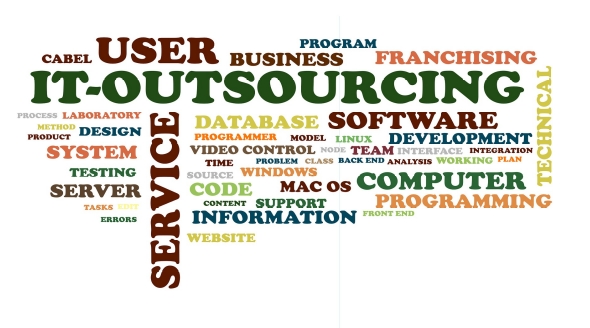You have to assess the risks and the benefits of every decision you make in software testing and quality assurance. In this article, Sandra Parker explains how to minimize the risks of outsourcing your software QA activities.
Author: Sandra Parker
Hiring a third party to handle specific jobs within a company, especially in the IT industry, is no longer to surprise anyone. Outsourcing is already widely applied in different areas of business. Even those employers who are still confused about whether to outsource or not, do not stay away from working with international companies, providing professional software testing outsourcing services specifically. Why?
Outsourcing QA is one of the most cost-effective decisions a business can make. If you need to save resources on space and equipment, outsourcing software testing can be a solution. It serves for faster and more efficient results too. Even though it has its pitfalls and risks.
Outsourcing in QA
First, let’s make it clear what QA outsourcing is.
Outsourcing is giving a project to a service provider company that handles the execution of that particular project and hires talents if it is required. Thus, the client does not bother with any details within the project. Do not confuse outsourcing with outstaffing.
Outstaffing is a type of employment when an employee carries his/her duties in a company while being officially employed by an outstaffing company. An ourstaffing company provides you with QA specialists according to the list of requirements and job descriptions you have. Your main task as an employer is to hold the interview. The outstaffing company is going to be a legal employer in this type of job model. When it comes to outsourcing in the quality testing process, you delegate a whole QA function to a third-party provider.
Why outsource QA? It provides a full package of advantages:
- Cost reduction;
- Better income realization;
- Access to a higher specialization level of QA, thus saving time on a project;
- More qualitative and faster results.
Even though the benefits of QA outsourcing are quite impressive, you can face a few challenges as well.
Challenges in QA Outsourcing
In the world of small business, it is a huge advantage for a company and a country, in general, to be able to outsource minds from all over the world, especially in a fast-growing IT industry. Despite the huge benefits this opportunity provides, outsourcing in QA has some risks as well.
- Confidentiality of the project and trust issues. Sometimes the outsourcing model cannot be applied to a particular project because of confidentiality measures. QA outsourcing can be quite risky for a software solution with an exceptional level of security.
- Cultural barriers and miscommunication. It is probably one of the main challenges an outsourcing team faces. It is not only about different countries and languages but about different work ethics and company culture policies as well.
- Pricing. The variety of outsourcing services in QA is wide, especially when it comes to financial scale and the factors it depends on.
How to Minimize Risks in QA Outsourcing
Even though the cons of outsourcing to a QA testing company seem to be overwhelming, outsourcing is still more beneficial for a business than insourcing. It is about saving time, quality improvement, and cost efficiency.
A strict confidentiality issue can be easily fixed by providing a security agreement. Of course, it is a time-consuming process. But it is worth it. The agreement between a service provider and a client will make it clear which testing scenarios and functionalities should be covered.
Miscommunication can be both a pro and a con. Outsourcing in QA is a great opportunity to add a new perspective to your project. It is not only about niche-specific skills. Someone with a different corporate culture, skills, and mindset can look at your project from a fresh perspective, paying attention to the smallest but critical bugs.
Even though you have to think about quality first, spending a big part of your budget on a quality assurance company is not a solution. When outsourcing in QA, you spend money on actual work instead of the gadgets and tools required for that work. Thus, working with a professional QA outsourcing provider that supplies a pool of talents who are already experienced in what they are doing will always be a pro. No extra expenses. You just pay for the work that is done. Outsourcing is the area where you can easily find specialists to any price/quality ratio.
Still not sure whether to bring QA outsourcing into your business or not? Check the risks, the pros, and the cons. What type of project do you have? How secure is it? What do you want to improve? If you have any doubts or can’t answer any of these questions, contacting a professional service provider will help to clarify everything.
About the Author
Sandra Parker has 10 years of experience in IT. She is a real technology geek, obsessed with coding and managing projects. Sandra’s main focus is to help companies accelerate their businesses through digital transformation with custom software development and latest quality assurance practices. Sandra loves writing about the latest technological trends and sharing her experience with the community.
Contact SoftwareTestingMagazine.com if you want to contribute quality software testing and software quality assurance content on this website.



